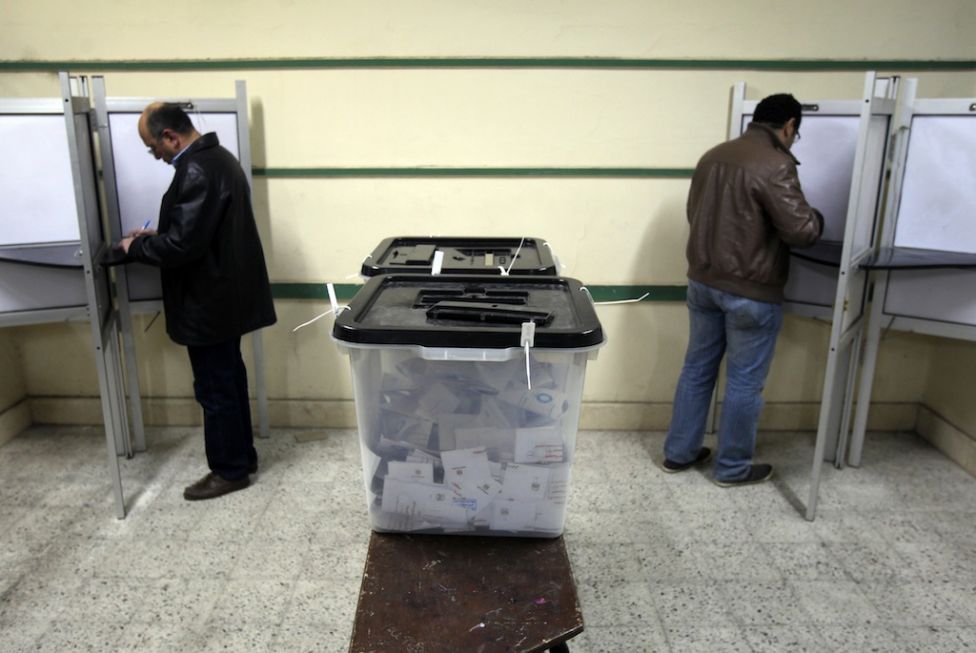Egyptians are awaiting the official results of a referendum on a controversial draft constitution.
Early unofficial results suggested more than 60% of voters said “yes” to the document, which is endorsed by Islamist President Mohamed Morsi.
But the electoral commission must first investigate opposition allegations of voting fraud.
Egypt has seen large and occasionally violent demonstrations by the opposing sides in the past few weeks.
If the constitution passes, elections must take place within two months and the deep polarization in the country is likely to continue.
In the meantime, legislative powers will pass to parliament’s upper chamber, the Islamist-controlled Shura Council.
State media reports of the results following Saturday’s second and final round of the referendum suggested that some 63% of voters had backed the charter. Turnout was low, estimated at 30%.

The electoral commission said it was compiling results from both rounds and that no time had been set for a confirmation of the outcome.
One member of the commission, Mohamed el-Tanobly, told Agence France-Presse it was examining all the allegations of irregularities so that the referendum “really reflects the will of the Egyptian people”.
The opposition National Salvation Front said on Sunday the vote had been marred by “fraud and violations”.
It said these included polling stations opening late, Islamists seeking to influence voters and a lack of judges to supervise.
Spokesman Amr Hamzawy told a news conference the National Salvation Front had urged the commission to investigate the irregularities but he also appeared to anticipate a “yes” vote.
He said: “We do not consider this constitution legitimate. We will continue to attempt to bring down the constitution peacefully and democratically.”
The opposition says the draft constitution fails to protect the freedoms and human rights that were sought in the uprising that ended Hosni Mubarak’s rule last year.
It accuses the president of pushing through a text that favors Islamists and does not sufficiently protect the rights of women or Christians.
But the Freedom and Justice Party, the political wing of Mohamed Morsi’s Muslim Brotherhood, said it hoped the “yes” vote would begin to heal divisions and bring stability.
On the Freedom and Justice Party Facebook page, its leader, Saad al-Katatni, wrote that its members were “extending our hands to all political parties and all national forces”, adding: “We will all start a new page.”
However, the crisis is continuing to affect the country’s economic status. On Monday, the ratings agency Standard and Poor’s downgraded Egypt’s long-term credit rating because of the ongoing tension.
Lowering the country’s long-term rating to B- from B, it said: “A further downgrade is possible if a significant worsening of the domestic political situation results in a sharp deterioration of economic indicators such as foreign exchange reserves or the government’s deficit.”
The latest unrest began after Mohamed Morsi issued a decree on November 22 stripping the judiciary of the power to challenge his decisions.
After an outcry, the president revoked much of the decree, but he refused to back down on the referendum on the draft constitution.
